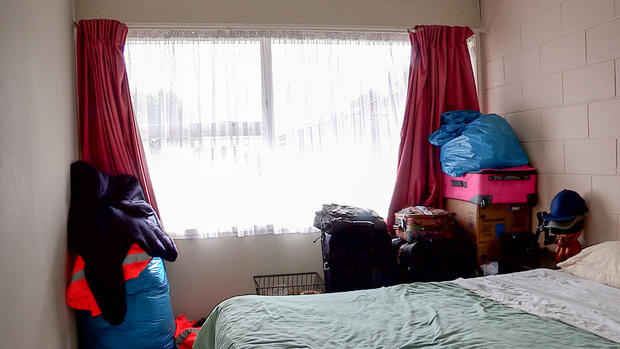PHOTO: Emergency housing
Some families in emergency housing are reporting their children are becoming emotionally distressed because of their living conditions.

(File photo) Social services providers are sounding a warning about the impact living in a motel is having on residents. Photo: RNZ
Demand for emergency accommodation has escalated this past year with the number of emergency housing grants increasing by half.
Data showed nearly 10,000 people were given an Emergency Housing Special Needs Grant between July and September last year.
On top of that, the government has contracted over 70 motels to house families and individuals. As of 30 November, they housed 1200 individuals.
But social services providers said the pace of demand was not slowing.
And they sounded a warning about the impact living in a motel was having on residents.
“They’re just not designed for permanent living,” said Taone O’Regan, the Aro Mai Housing First operations manager for the Downtown Community Ministry (DCM) in Wellington.
“They are quite often overcrowded, too small to store any of your belongings in, and in close quarters, there is very little space from each other.”
DCM supports those at the sharp end of homelessness – the long-term rough sleepers and those suffering from addictions and mental health issues.
O’Regan said the lack of space and proximity to others presenting with mental health or addiction issues was unsuitable.
“It’s like putting everybody into an acute mental health ward without any nurses, doctors or treatment available.”
READ MORE VIA RNZ














